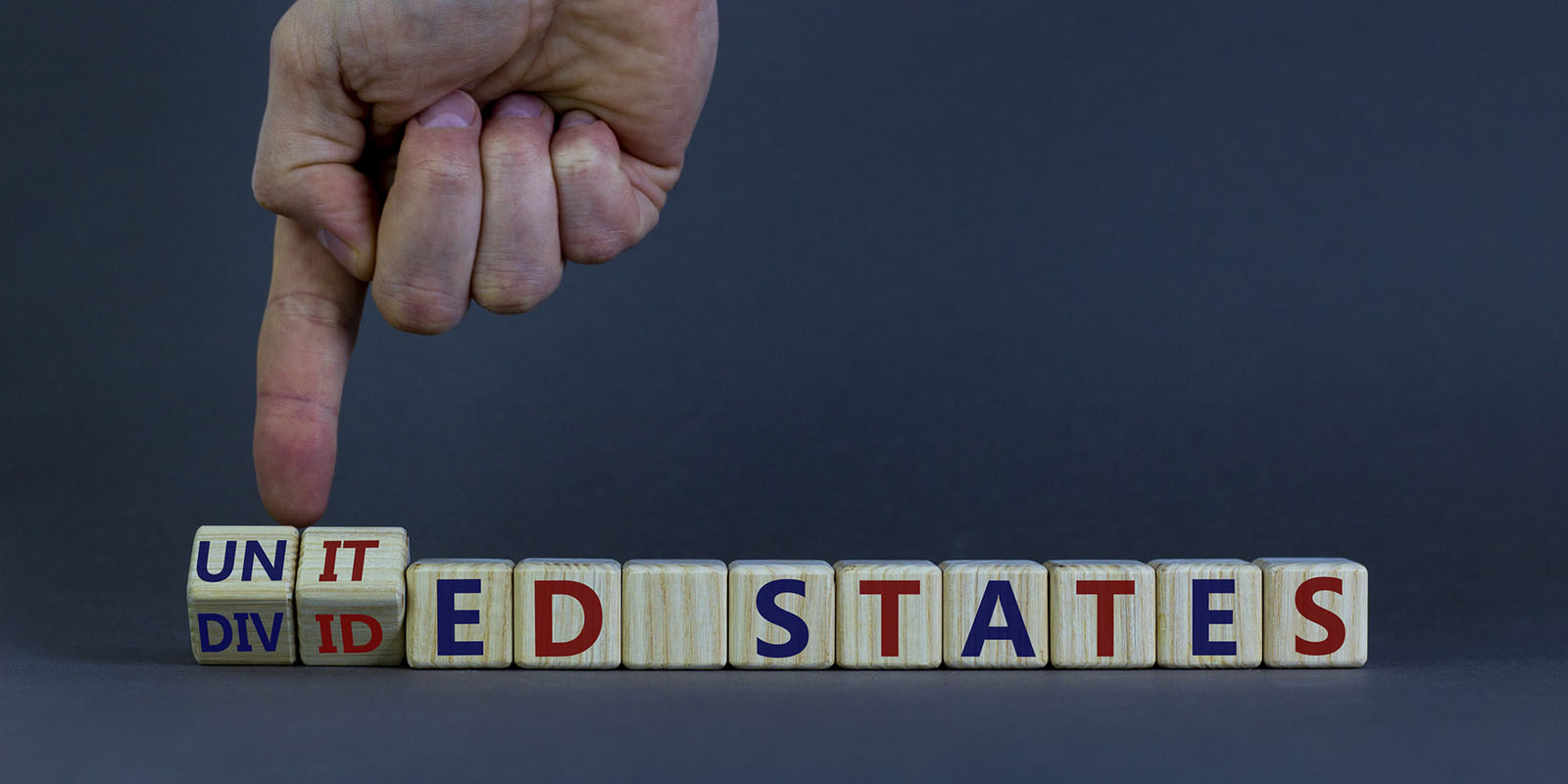 (iStock.com/Dzmitry Dzemidovich)
(iStock.com/Dzmitry Dzemidovich)
The first graded assignment in Vincent de Paul Professor Dusty Goltz’s class, Performance for Social Change, was for students to construct a performance that tells the audience who their political adversaries are, essentially to walk, talk and think like their political opponents. The title of the assignment was “Them.”
“Students, like most of us, realize they’re deeply invested in this dislike, this hatred and this resentment of a ‘them’ who doesn't exist, who they don't know, and that they're writing purely on anger and emotion,” Goltz says. “That's where the class starts because that's where I think most of the country is at intuitively all the time.”
Goltz’s class and Associate Professor Maria De Moya’s class, Communication for Social Change, are the cornerstone of "Communication Beyond Polarization," the inaugural theme of the
Open Learning Project in the College of Communication’s Center for Communication Engagement.
In his class’s first assignment, Goltz says, it quickly became apparent that the performances leaned heavily on stereotypes, often the most extreme version of views at the fringes of American society.
“Communication is about co-creation, about how we interact to create meaning,” De Moya says. “That's why a topic like polarization is influenced by communication in many ways.” And, she adds, it’s why polarization is ripe for exploration for the Open Learning Project.
The project was born out of a shared concern about the breakdown of communication due to polarization, discussed by the College of Communication’s leadership, the Dean’s Advisory Council and Rick Jasculca, chair of Jasculca Terman Strategic Communications. It aims to open a discussion at the university of a pressing topic each year through a communication perspective. The college will offer classes, provide free educational resources, foster research and host events related to the yearly theme.
Its first event, in partnership with Jasculca Terman Strategic Communications, is "Media, Disinformation and Polarization: A Conversation with David Axelrod" on Nov. 16, sponsored by Flowers Communications Group and Golin. Axelrod, a political analyst and the director of the University of Chicago’s Institute of Politics, will discuss the media’s role in polarization and how civic engagement can help address its impact.
The discussion will be in DePaul's Daley Building, 247 S. State Street, Lower Level, Room 105 on Nov. 16 at 6 p.m. Limited spots are available. If students, faculty or staff are interested in attending, please reach out to
communication@depaul.edu for more information.
De Moya, who will moderate the discussion, plans to ask Axelrod about how the use of social media has changed since former President Barack Obama’s first presidential campaign, which Axelrod served as chief strategist.
De Moya is teaching her students about polarization through communication for social change, where the main goal is to empower a community to meet its needs. Her students have chosen to focus on the role played by misinformation, particularly on social media, and how media literacy can improve it. Their final projects will recommend strategies for the college to use to improve media literacy.
De Moya says contrasting social media use then and now “is a very good example of how our tools as communicators can be used for different meanings, for different purposes. We can use them to inform, or to misinform. We can use them to persuade, or to manipulate.”
Meanwhile, Goltz says he hopes his students are listening for something more personal. In his performance class, his focus is on: how does polarization shape the way we view and interact with the world, and, importantly, how do those behaviors perpetuate the dynamic?
“Where's personal accountability? Where's personal responsibility? Where am I even hearing people reproduce polarized patterns as we're even attempting to talk about it?” Goltz asks, saying these are questions he hopes his students are considering during the discussion.
That De Moya and Goltz’s classes take such different approaches to the topic shows how versatile the study of communication can be in tackling pressing social problems like polarization. This kind of exploration is exactly what College of Communication Interim Dean Lexa Murphy hopes the Open Learning Project will continue to foster.
“As we continue to navigate a global public health crisis, an awakening to social and racial injustices at home and around the globe, and continued polarizing national discussions, we believe that a communication approach with a focus on bridging gaps and facilitating understanding between and among differing people and diverging opinions has never been more relevant and important than it is today,” Murphy says.
After Goltz and De Moya’s classes end this quarter, the Open Learning Project will continue, with more resources on their webpage, events and classroom discussions.